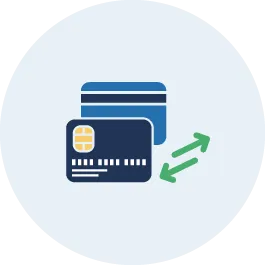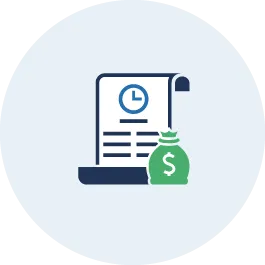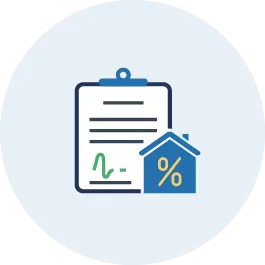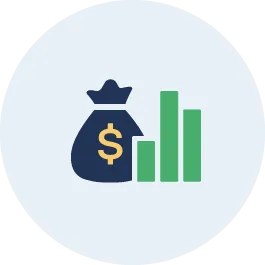Understanding Debt Consolidation
Are you a step away from falling behind on your bills? If so, debt consolidation could be a helpful debt management strategy to simplify your payments.
Debt consolidation programs involve combining multiple debts into a single, large loan or line of credit. By doing so, you can simplify your monthly payments and potentially secure a lower interest rate that may reduce the total amount of interest paid over time. However, it is important to carefully assess the terms and potential fees associated with any consolidation offer to ensure it aligns with your financial goals and needs.

Debt Consolidation Options
Transferring existing credit card balances onto a new credit card with a low or 0% interest rate for an introductory period. But beware, as this option generally has high interest rates after the introductory period, and this could hurt your credit score if the credit card balances are above 30% of credit limits.

Taking out a personal loan, potentially with a lower interest rate or monthly payment, to pay off multiple debts. With this option, the repayment terms are generally shorter due to the unsecured nature of the loan.

Using the equity in your home to secure a loan or line of credit may secure a lower interest rate. However, if the loan is not repaid in a timely factor, you may risk home foreclosure.

Borrowing from your retirement savings account at a typically lower interest rate compared to other retail lending products. You run the risk of early distribution penalties and tax liabilities if not repaid timely and you do not earn investment gains on borrowed funds for the duration of the loan.

Paying Upfront Costs
Like most financial products, debt consolidation loans often come with upfront costs, such as origination fees. These fees cover the costs of the financial institution to start the account. Be sure to shop around and research the fees and the terms before agreeing to the loan.
What Happens if I Am Unable to Repay the Debt Consolidation Loan?
If you don’t pay a debt you owe, a creditor or its debt collector may file a lawsuit to collect the money. If the court enters a judgment against you, it will state the amount you owe and allow the creditor or collector to get a garnishment order. This order will direct a third party, like your bank or credit union, to use funds from your account to pay the debt.
If ordered by the court, your wages can be garnished, which means your employer withholds part of your compensation to pay the debt. Federal benefits may be garnished only under certain circumstances, such as to pay “past due” taxes, alimony, child support, or student loans.
Debt Consolidation Scams
While debt consolidation loans can be a helpful tool for money management, be on the lookout for tactics that may hints that it may be a scam. Scammers may:
- Claim to eliminate debt
- Ask for upfront fees
- Promise to make the collection calls stop
If you are considering a debt consolidation loan, do your homework and read reviews. Legitimate companies will:
- Reach out only after a consumer has expressed interest
- Not charge upfront fees
- Be realistic about what options are available
Debt Consolidation Loan Disclosures
- The Truth in Lending Act (TILA) permits consumers to make informed credit decisions when comparing credit terms.
- Review and understand disclosures for credit terms associated with debt consolidation loan.
- If you experience issues with TILA disclosures you receive from your credit union, you can contact NCUA’s Consumer Assistance Center at 800-755-1030 for assistance in filing a customer service complaint against your credit union.

Frequently Asked Questions
- Add Up Monthly Debt Payments: Include all your monthly debt obligations such as your: mortgage or rent payments; student, auto, and personal loans; other loans; credit card payments, child support payments that you make; alimony payments that you make; and any other monthly debt payments. Living expenses such as utility bills, food, and entertainment are not typically included.
- Add Up Gross Monthly Income: Your gross monthly income includes the total amount of money you receive in a month from all sources before taxes and other deductions. Income includes earnings from your employment as well as other sources.
- Divide and Multiply: Divide your total monthly debt payment by your gross monthly income then multiply by 100 to get a percentage.
Example: If your total monthly debt payments are $1,500 and your gross monthly income is $5,000, your DTI is 30%. This means that 30% of your gross monthly income goes towards paying debt. Knowing your DTI is important for keeping track of your budget. Lenders may also look at DTIs to assess a borrower’s credit worthiness.
Paying only the minimum payment on a credit card often doesn’t significantly decrease the amount due because of the way interest and fees are applied. Here are the main reasons.
- Interest Accumulation – When you make only the minimum payment, a large portion of that payments goes toward interest rather than the principal balance. This means the actual debt amount decreases very slowly.
- Fees – If your account has any fees, such as late payment fees or annual fees, these can add to your balance. Paying only the minimum may not cover these fees causing your balance to remain high or even increase.
- High Interest Rates – Credit cards often have high interest rates. Even if you make the minimum payment, the interest charged on the remaining balance can be substantial, offsetting the reduction in the principal.
- Continued Spending – If you continue to use the credit card while making only minimum payments, new charges will add to your balance, making it difficult to see a decrease.
Example: If you have a balance of $1,000 with an interest rate of 13% and make a minimum payment of 2% ($20), a significant portion of that $20 will go toward interest, leaving a small amount to reduce the principal.
Debt consolidation is a way to combine all of your debts into a single loan with one monthly payment. A debt consolidation loan can offer several benefits, particularly if you struggle to manage multiple debts with varying interest rates and payment schedules. Here are some key advantages.
- Single Monthly Payment – Instead of juggling multiple payments to different creditors, you make just one monthly payment to the consolidation loan provider.
- Lower Interest Rates – If your consolidation loan has a lower interest rate than your current debts, you can save on interest over time.
- Fixed Repayment Schedule – Most debt consolidation loans come with fixed terms, so you know exactly how much you need to pay each month and when you have paid your debts in full. Also, you can pay off your debt faster than you would by continuing to make minimum payments on multiple accounts.
- Improved Credit Score – Using the loan to pay off credit card balances and reduce your credit utilization ratio can positively impact your credit score.
- Reduce Stress – Handling multiple debts can be overwhelming. Consolidating them into one loan reduces the number of accounts you need to keep track of, helping to ease financial anxiety.
- Better Financial Management – A debt consolidation loan can provide a clearer path to becoming debt-free, as you will have a defined repayment plan and a specific timeline for paying off your debt.